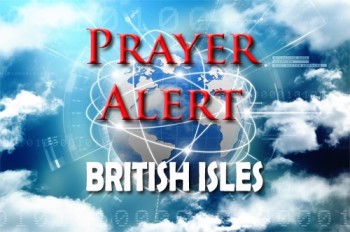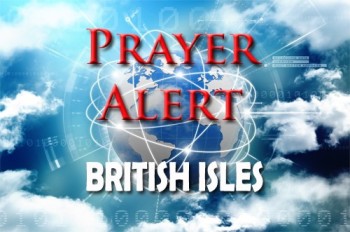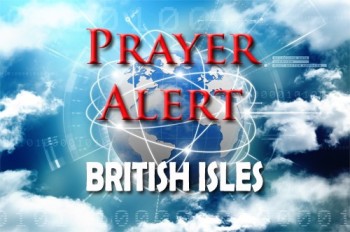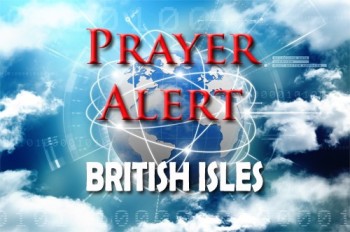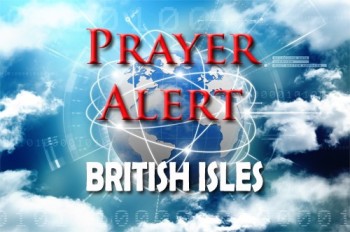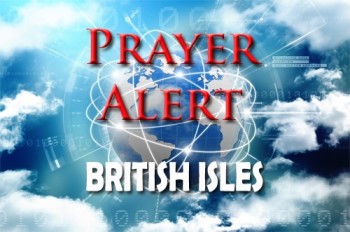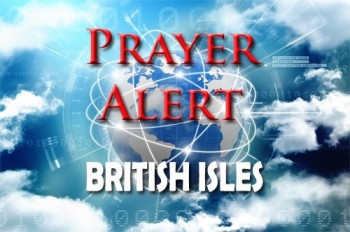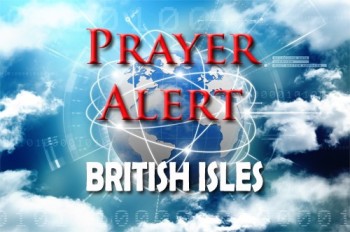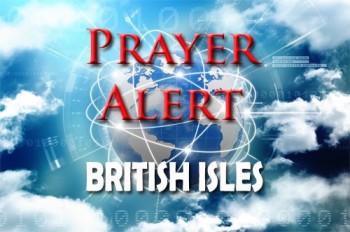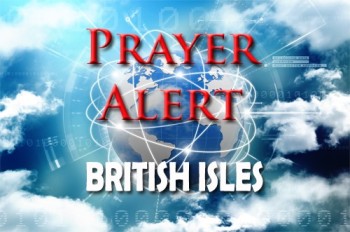Displaying items by tag: United Kingdom
UK ministers visit Saudi Arabia to boost trade ties amid ‘lethal force’ reports
UK Cabinet ministers, including Deputy Prime Minister Oliver Dowden, are visiting Saudi Arabia to strengthen trade ties amid reports of Riyadh authorising lethal force to clear land for a new desert city. Dowden is leading a 450-strong delegation of British businesses at the two-day summit aimed at promoting economic ties. Downing Street defended the visit after the BBC reported claims of Saudi forces using deadly force to evict villagers for The Line, a 105-mile-long metropolis in Neom. See Rishi Sunak’s spokesman emphasised the importance of the UK-Saudi relationship and confirmed ministers would address human rights concerns. Campaigners criticised the visit, urging an independent investigation into the reported killings. Amnesty International highlighted the need for businesses to assess risks in Saudi Arabia. Dowden announced a new joint task force for higher education cooperation and projected a £3 billion investment from Saudi Arabia to sustain 2,000 UK jobs.
Keir Starmer makes pre-election pitch with six pledges
Labour leader Sir Keir Starmer is set to outline six pledges as part of his pre-election pitch. These commitments include establishing a border security command to tackle criminal gangs behind small boat crossings and also the recruitment of 6,500 teachers. At an event in Essex, Starmer will say these pledges mark 'a decade of national renewal’. The six steps are: 1) sticking to tough spending rules for economic stability; 2) cutting NHS waiting lists with 40,000 more weekly appointments funded by tackling tax avoidance; 3) launching a border security command; 4) establishing Great British Energy, a publicly-owned clean energy company; 5) increasing neighbourhood police officers to reduce antisocial behaviour; and 6) recruiting 6,500 teachers by ending tax breaks for private schools. These steps will form a key part of Labour's election campaign. The Conservatives criticised the plans, arguing their current policies are effectively strengthening the economy and immigration system. Labour's pledges aim to prove the party's reliability with public money and defence.
Report endorses graduate visas amid immigration concerns
The graduate visa route, which allows overseas students to stay in the UK for up to three years post-graduation, should remain, according to a Migration Advisory Committee (MAC) report. This follows concerns from Home Secretary James Cleverly about potential abuse for immigration purposes. Despite calls from former immigration minister Robert Jenrick to abolish the visa, the report found no evidence of widespread abuse and highlighted its importance for funding British universities and supporting the government's international educational strategy. It emphasised the visa's role in helping universities expand course offerings and cover financial losses from domestic students and research. In 2023, 114,000 graduate route visas were granted, primarily to students from India, Nigeria, China, and Pakistan. The MAC recommended maintaining the route and implementing a mandatory registration system for international recruitment agents to prevent exploitation. The British Chambers of Commerce supported the findings, citing the need for skilled workers. Despite some initial low-wage employment, many graduate visa holders transition to skilled roles, enhancing their job prospects and wages over time.
Many court hearings postponed as prison crisis worsens
Hundreds of court hearings have been postponed due to a worsening prison crisis. The Government has triggered emergency measures under Operation Early Dawn, causing defendants to remain in police custody instead of being transferred to magistrates' courts for bail hearings. This contingency allows defendants to be held in police cells until prison beds are available, leading to last-minute delays and adjournments. Justice officials have not confirmed the number of affected cases but emphasised the measures aim to limit disruption. Labour criticised the government for 'stalling justice' and leaving victims in limbo. Legal bodies expressed concern about the real-life consequences of these delays. The government blamed prison capacity issues on backlogs from the pandemic and the 2022 barrister’s strike. However, prisons watchdog Charlie Taylor called the situation 'entirely predictable,' and legal representatives described the scenario as 'administrative carnage.' The Magistrates’ Association and other legal experts have urged the government to provide more resources in the justice system to prevent further delays and inefficiencies. The emergency measures are expected to last a week.
Man arrested for terrorism offences and causing explosions
A 31-year-old man from Bedfordshire has been arrested on suspicion of terrorism offences after police discovered 'suspicious substances' at his home. Initially arrested on 6 May for causing explosions likely to endanger life and possessing Class A drugs, the man was found with several suspicious items. Bedfordshire Police conducted a small controlled explosion last week and informed the Metropolitan Police's counter-terrorism officers. The man was bailed while investigations continued but was re-arrested on Tuesday on suspicion of possessing articles for terrorist purposes. The police reported finding numerous items and substances at his address, which are being safely removed by specialist officers. They assured the public that there is no risk to local residents or the wider community. Locals described the man as living with his parents, with his mother stating he collected chemicals. She maintained it was unrelated to terrorism and that police were being over-cautious.
Keir Starmer faces Labour anger after Tory MP's defection
Sir Keir Starmer’s decision to welcome Tory MP Natalie Elphicke's defection to Labour has stirred mixed reactions among Labour MPs. Elphicke, previously a Conservative representative for Dover, made the unexpected switch, causing some Labour members to express confusion and dismay, despite leadership viewing it as a significant coup. Critics within the party, including Canterbury MP Rosie Duffield, find Elphicke’s switch puzzling, given her past criticisms of Labour’s policies and her controversial defence of her ex-husband, Charlie Elphicke, following his sexual assault conviction. The defection, happening just before Prime Minister's Questions, has complicated matters for Labour, already has candidates in Elphicke's constituency. (In practice, Mrs Elphicke will not contest the Dover election, as she plans to leave the Commons). Despite the internal discord and criticism from the Conservative side, labelling Elphicke as opportunistic, Sir Keir emphasises the broader strategic advantage of attracting former Conservative voters to Labour. This move, however, remains contentious among both Labour and Conservative members.
Scotland: Kate Forbes becomes deputy first minister as John Swinney unveils Cabinet
John Swinney, newly sworn in as First Minister of Scotland, has appointed Kate Forbes as Deputy First Minister, sparking criticism for creating a "continuity Cabinet." Forbes, previously Finance Secretary, replaces Shona Robison and will also oversee the economy and Gaelic. Critics label the Cabinet reshuffle as uninspired, fearing it prioritises party interests and independence over pressing national issues. Despite maintaining many previous Cabinet members, Swinney asserts the mix of experience and energy will focus on eradicating child poverty, economic growth, and meeting climate commitments. Scottish Greens and other opposition parties express concerns about Forbes's conservative views potentially affecting government direction, particularly in social equality and climate action. Scottish Conservative and Labour leaders criticise the leadership's consistency, foreseeing continued national challenges. Forbes expresses honour in her new role, committed to improving Scotland alongside her colleagues.
Tech firms told to hide 'toxic' content from children
Ofcom has introduced draft codes of practice mandating tech firms to shield children from "toxic" content by enhancing age checks and modifying algorithms. This move comes after parents criticized the slow pace of regulatory changes following tragic incidents where children were harmed by online challenges. Companies failing to comply might face bans for users under 18 and public naming. Meta and Snapchat have noted their existing protections for minors, but broader industry responses are tepid. Ofcom's Dame Melanie Dawes emphasized the severity of recurring harmful content in social feeds, declaring the new regulations a significant step towards safeguarding young users. These measures, part of the Online Safety Act, are set to be enforced from the second half of 2025, with tech companies required to assess risks and adjust accordingly. The UK government and Ofcom are urging immediate engagement from tech platforms to prevent harmful exposure, while bereaved parents continue to advocate for stronger actions and the inclusion of mental health education in schools.
Church of England - Living in Love and Faith group convening
Members of the Church of England’s Living in Love and Faith (LLF) initiative are set to convene for discussions in a Leicester hotel, as part of ongoing efforts to address divisions within the church regarding human sexuality and related practices. This gathering precedes a crucial July meeting of the General Synod where proposals will be presented. Led by the Bishop of Leicester, Rt Revd Martyn Snow, and assisted by a program board, the groups will deliberate over three days. Upcoming meetings by the House of Bishops will determine recommendations for the College of Bishops in June. Discussions will include the use of the Prayers of Love and Faith in stand-alone services, a proposal narrowly approved by the Synod last November. Additionally, new pastoral guidance is anticipated to permit clergy and lay ministers in same-sex civil marriages, reflecting a shift in bishops’ opinions. Another group will explore provisions for those opposing these changes. The Church of England Evangelical Council (CEEC) has called for ‘prayers for a harmonious resolution that respects orthodox beliefs’. See
Polls open in England’s local elections, Tories braced for heavy losses
Polling stations have opened in England for local elections, with the Conservative Party facing potential heavy losses that might impact Rishi Sunak's leadership. These elections, spanning over 2,600 seats across 107 councils, serve as a significant gauge of the Tories' popularity (or otherwise). Labour leader Keir Starmer, calling them ‘a chance for change after fourteen years of decline’, has highlighted policies which prioritise working people and restore integrity in politics. Previously contested in 2021, these council seats saw the Conservatives at their strongest post-UK Covid vaccine rollout. Current predictions suggest they might lose around 500 seats. There are also contests for ten mayoralties and 37 police and crime commissioner roles, and a parliamentary by-election in Blackpool South following a Tory MP's resignation due to a scandal. Labour hopes to make significant gains, particularly in tightly contested mayoral races in the West Midlands and Tees Valley. The outcome of these elections could trigger a leadership challenge for Sunak if the results are as bad as predicted.
